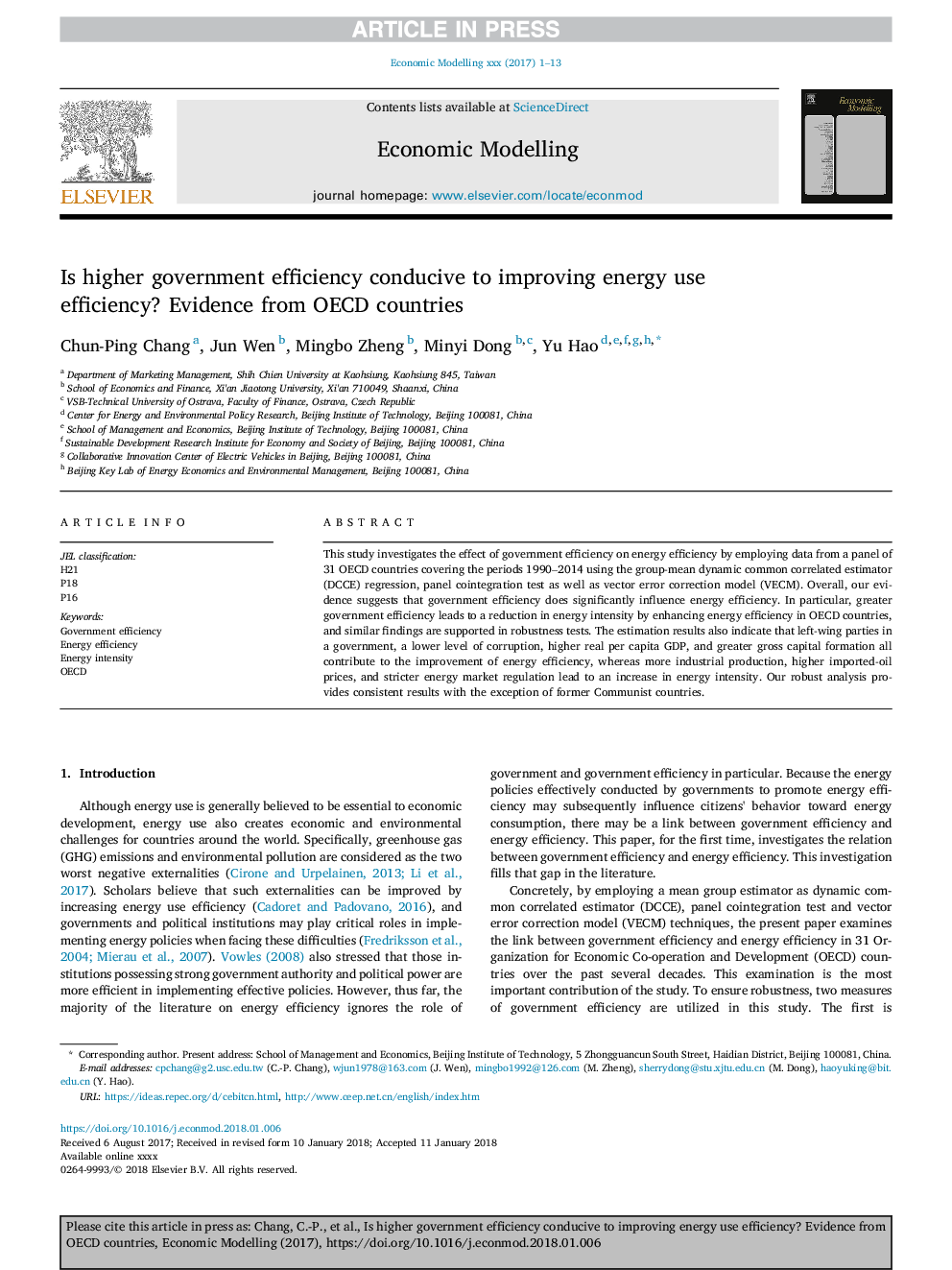| Article ID | Journal | Published Year | Pages | File Type |
|---|---|---|---|---|
| 7346885 | Economic Modelling | 2018 | 13 Pages |
Abstract
This study investigates the effect of government efficiency on energy efficiency by employing data from a panel of 31 OECD countries covering the periods 1990-2014 using the group-mean dynamic common correlated estimator (DCCE) regression, panel cointegration test as well as vector error correction model (VECM). Overall, our evidence suggests that government efficiency does significantly influence energy efficiency. In particular, greater government efficiency leads to a reduction in energy intensity by enhancing energy efficiency in OECD countries, and similar findings are supported in robustness tests. The estimation results also indicate that left-wing parties in a government, a lower level of corruption, higher real per capita GDP, and greater gross capital formation all contribute to the improvement of energy efficiency, whereas more industrial production, higher imported-oil prices, and stricter energy market regulation lead to an increase in energy intensity. Our robust analysis provides consistent results with the exception of former Communist countries.
Related Topics
Social Sciences and Humanities
Economics, Econometrics and Finance
Economics and Econometrics
Authors
Chun-Ping Chang, Jun Wen, Mingbo Zheng, Minyi Dong, Yu Hao,
